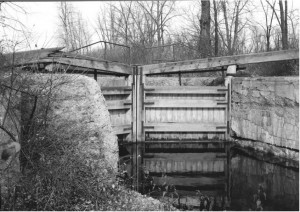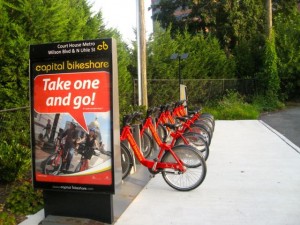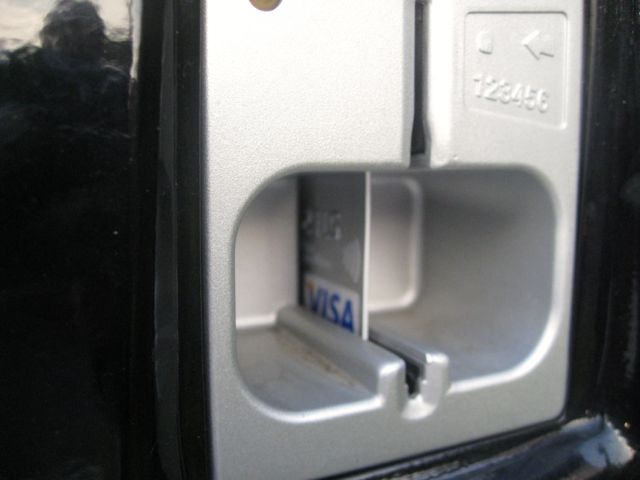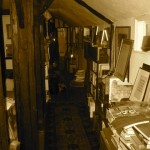By Quentin Cockburn
Arriving at Devizes we marveled at the truly eccentric Caen Lock. I heard that “Only the english could arrive at this sort of solution”. Indeed there was something so very dogmatic about the engineering, not an elegant solution, but a marvel of exactitude nonetheless and perhaps an abundant supply of willing cheap labour.
Funny that it’s quaint to us, but in its day a demonstration of early capitalism, Blake-ean Mills, and the reality of Transportation of a more final kind. There in front of us a hill, perhaps 100 metres in height. Before us an upward procession of lock gates, all 33 of them! Each, with white painted lock spars, (the bit you push), and the railing, (also white), the stone surrounds and the lock gates a neat rectangle of steel and timber, before and adjacent a pool of water, as a sort of reserve pool for heavy traffic.
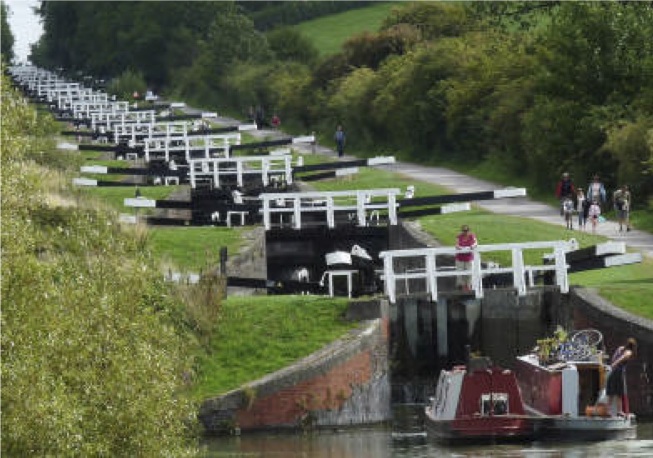 And incomprehensibly the same again and again, until improbably the nostalgic inference of Constable and Hogarth gave way to Escher’s excruciating sense of illusion. Practically speaking, we were told it took almost the entire day to negotiate the system, People were less time deficient then, and I could understand the stagnation along the canals, why bother? But as a feat of engineering – unstoppable!!!
And incomprehensibly the same again and again, until improbably the nostalgic inference of Constable and Hogarth gave way to Escher’s excruciating sense of illusion. Practically speaking, we were told it took almost the entire day to negotiate the system, People were less time deficient then, and I could understand the stagnation along the canals, why bother? But as a feat of engineering – unstoppable!!!
An aside, perhaps it was during our canal journey we observed once again the reluctance on behalf of the English for incidental small talk. We’d pass people and give a good natured wave and in return either get a perfunctory nod or as they trudged along the pathway, almost a surly, sneering, grudging recognition. Perhaps it was the climate we mused, it had been a long winter, but so often the sun was not mediated though a sunny disposition. We could be wrong. My son and I stayed at the Black Bear Hotel, we ate breakfast in style. The three females had to content themselves with a surly B & B matron, an advertised spa that was ‘Out-Of-Order’, a dinner that was ‘off’, and a bed of sorts. Once again, life was “funner” in the boys club.
We stayed at Devizes, and made the journey back again, less revelatory, but interesting, and then by a curious quirk of navigation, found ourselves inadvertently at Stonehenge.. But that’s another story. Cheers

